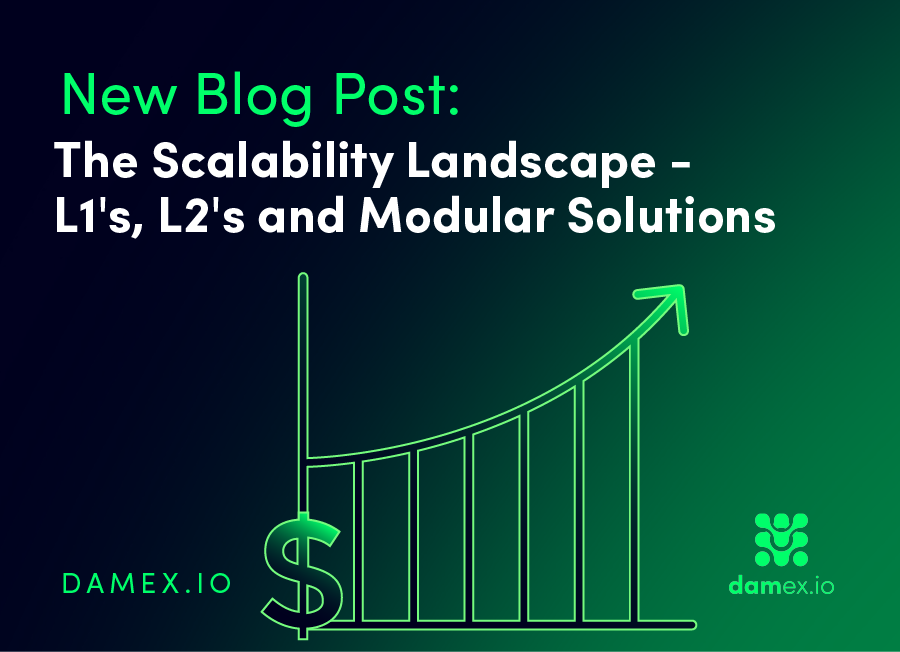L1’s or L2’s?
- The last bull run saw a wave of new L1’s gain traction to due the high cost of transacting on Ethereum
- Demand for blockspace has fallen with price in recent times and Ethereum scaling solutions are being built rapidly
- This suggests new L1’s may not garner as much interest as they did in the previous cycle, unless they can bring new advantages beyond just cheap and fast transactions
L1’s or L2’s?
Several of the largest gains in market cap in the last cycle came from alternative layer-1 blockchains. Some followed Ethereum’s EVM standard while others (such as Cosmos and Solana) had their own designs and unique functionality. For many users Ethereum became restrictive due to high gas costs and this opened the door to alternative solutions for users who were priced out of using Ethereum. Layer two scaling solutions were much talked about but only became a reality late in the day, with the launch of Optimism and Arbitrum. Both of these utilise optimistic rollups to handle large numbers of transactions at a cheap cost, while maintaining the underlying security of the base Ethereum layer. These ecosystems are being heavily developed at the moment and with the addition of new zero-knowledge rollups on the horizon it should become easier and easier for Ethereum to compete on speed and cost with new chains. Despite this, many new L1’s are set to launch in the coming year and could gain significant market share if their unique selling point is strong enough. Perhaps a project in the Cosmos ecosystem like Sei or Canto will grow to compete with their Ethereum equivalents, or perhaps one of the “Solana killers” like Aptos or SUI will show significant improvements with their own version of the Move programming language (which some would argue is superior to EVM’s Solidity).
There is another line of argument that it is the dApps themselves that will accrue most of the value in the next cycle instead of the native blockchain currency. Perhaps a new CLOB perp DEX built on one of the new L1’s is what really takes off. Or a new NFT platform on a currently pre-launch zero-knowledge L2. There is always a good amount of churn in the top projects between bull runs but this could extend to where value sticks as well in the next cycle. The AVAX and SOL’s of the next run may well end up being dApp tokens rather than native L1 currencies. Crypto feels as if it moves so fast in part due to the changing narratives within the market. Trends that have lasted years can be broken quickly and ideas that were ignored for long periods of time can suddenly come into central focus.
Modular Scaling
One of these new narratives is the concept of modularity in blockchains. Currently chains tend to operate in a monolithic structure; where the key layers of the blockchain are all handled by one chain. These layers are the following:
1) Execution layer – processes transactions from dApps on the blockchain
2) Data availability layer – ensures data is publicly available
3) Consensus layer – Determines the sequence of transactions
4) Settlement layer – Decides the overall state of the blockchain
A modular blockchain focuses on a few of these layers in order to increase scalability. There are several projects working in this area, but perhaps the best known of these is Celestia. The Celestia team is building a modular blockchain network. Blockchains and rollups of all virtual machines (not just EVM) can use Celestia as the data availability layer and consensus layer. By doing this, there is an increased potential for additional scaling of the chain using things like sampling and “honest minority” light nodes. While an L2 like Arbitrum can function as the execution layer of Ethereum, Celestia allows for a greater level of modification and optimisation of multiple layers of the blockchain. On top of this, these features are not exclusive to Ethereum and can be used on other L1’s, even if they are not EVM-compatible.
Long Term Winner?
Much of the technology that will be taken for granted in decades to come by blockchain users is in the process of being invented and refined right now. Because of this, it can be hard to judge what will succeed over the long term due to the abundance of innovation happening at the moment. That being said, Ethereum has cleared many hurdles already, such as the merge last year, and has retained a huge amount of developer talent despite competition from other chains. If rollups succeed and dApps continue to innovate within the ecosystem it is hard not to bet on ETH doing very well in the coming years. Despite that, it needs to be said that Ethereum is only one vision of what a blockchain platform could look like. Something like Cosmos functions wildly differently but could be a part of that on-chain future in a significant way if things go well. There is plenty of room for other protocols if there is a real differentiator they can demonstrate when compared to the growing Ethereum stack. Some of the biggest winners of the next cycle will be found amongst these competitors, but the Ethereum ecosystem has never looked stronger than it does today.



